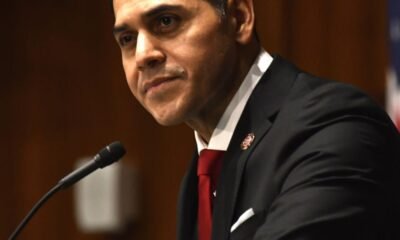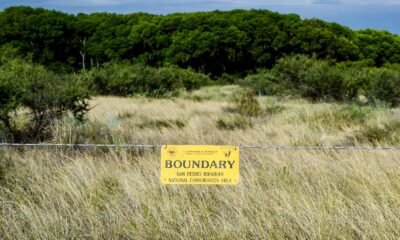Editorials & Opinions
Mayor of Surprise Sparks Controversy by Suppressing Citizens’ Free Speech Rights

During a recent Surprise City Council meeting, Mayor Skip Hall directed police to arrest resident Rebekah Massie, age 32. The incident unfolded as Massie voiced her concerns regarding a pay increase for city attorney Robert Wingo, claiming he violated state law and the Arizona State Bar’s standards related to election issues.
Massie highlighted Wingo’s compensation, noting he earns $265,790 per year, making him the fifth-highest paid municipal attorney in Arizona despite the city’s modest population of 158,200 residents. All her comments were based on publicly available information and prior media reports, yet Hall interrupted her speech multiple times.
The mayor cited a controversial council policy prohibiting comments about city employees during public discussions. Critics argue this move infringes on First Amendment rights, as the constitution guarantees citizens the ability to voice grievances against public officials. Hall’s assertion of this policy has raised significant concerns over constitutional violations.
According to free speech advocates, no local regulation can override the constitutional right to criticize elected officials. The First Amendment protects the right to express dissenting views, and Hall’s attempts to prohibit such comments are seen as an overreach of authority. Massie, who remained calm throughout her address, faced charges of trespassing, obstructing government operations, and resisting arrest.
The Foundation for Individual Rights and Expression (FIRE) has publicly condemned the city’s actions and is preparing to pursue legal action on Massie’s behalf. The organization issued a statement reinforcing that the First Amendment secures the right to criticize public officials without fear of arrest.
Incoming mayor Kevin Sartor condemned Hall’s actions, labeling them as unacceptable. He emphasized that free speech is crucial for holding government accountable, asserting that such treatment of citizens is harmful to democratic principles. Sartor’s statements reflect a broader sentiment among residents in the Verde Valley regarding the need for transparency and responsive governance.
The incident has sparked heated discussions about the balance between municipal rules and constitutional rights in Surprise, with many calling for a reevaluation of policies that may infringe on free speech. Whether the city will address these concerns legally remains to be seen, as the case develops.


















